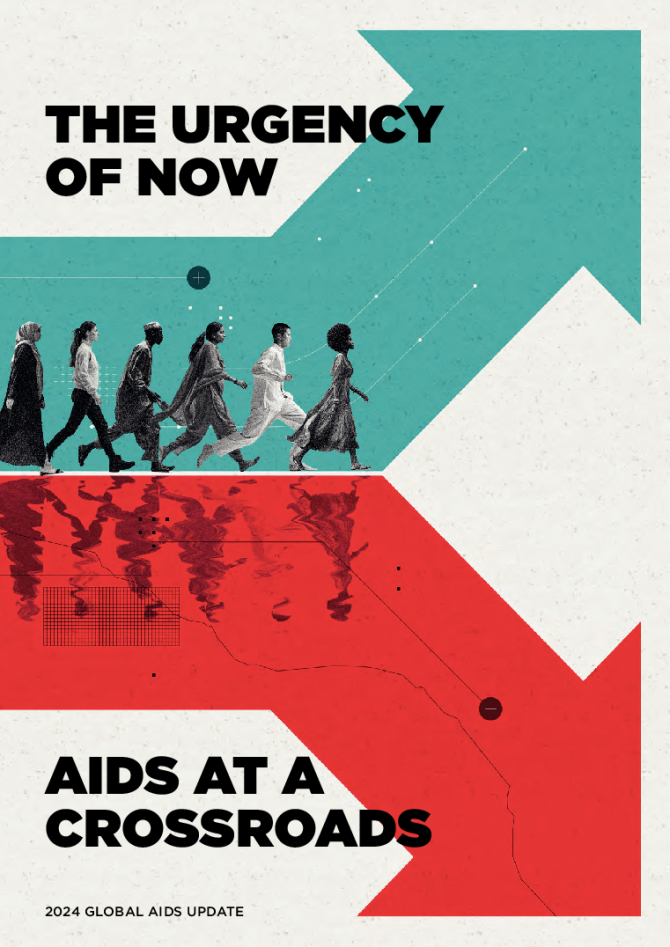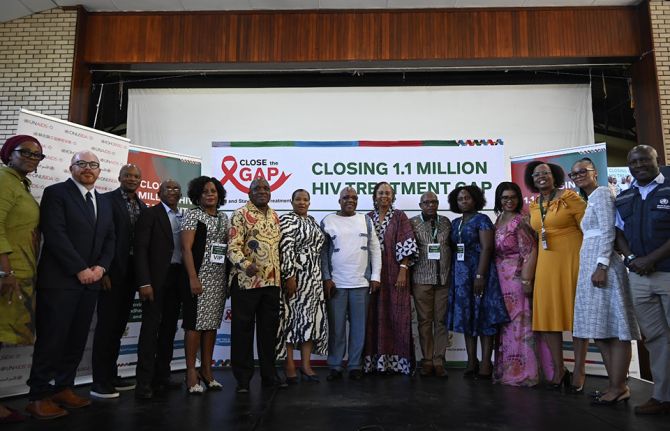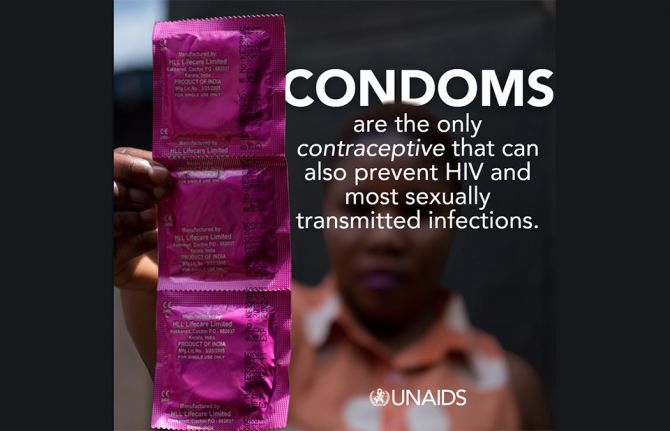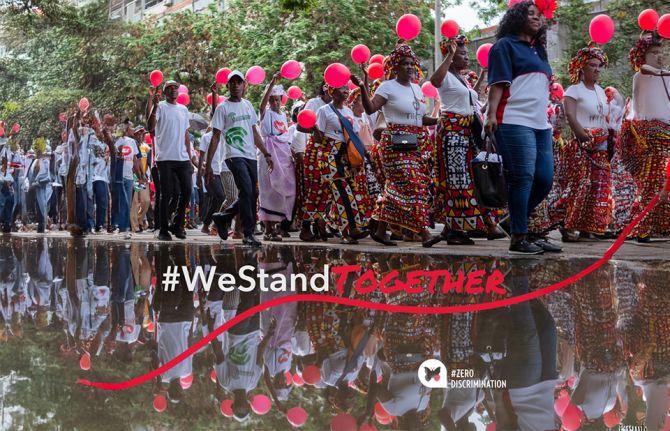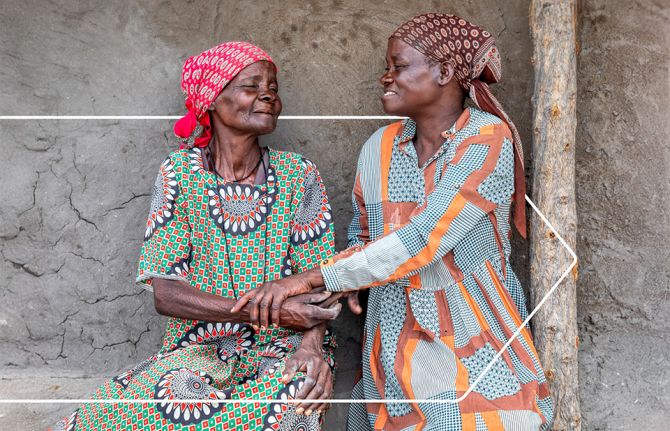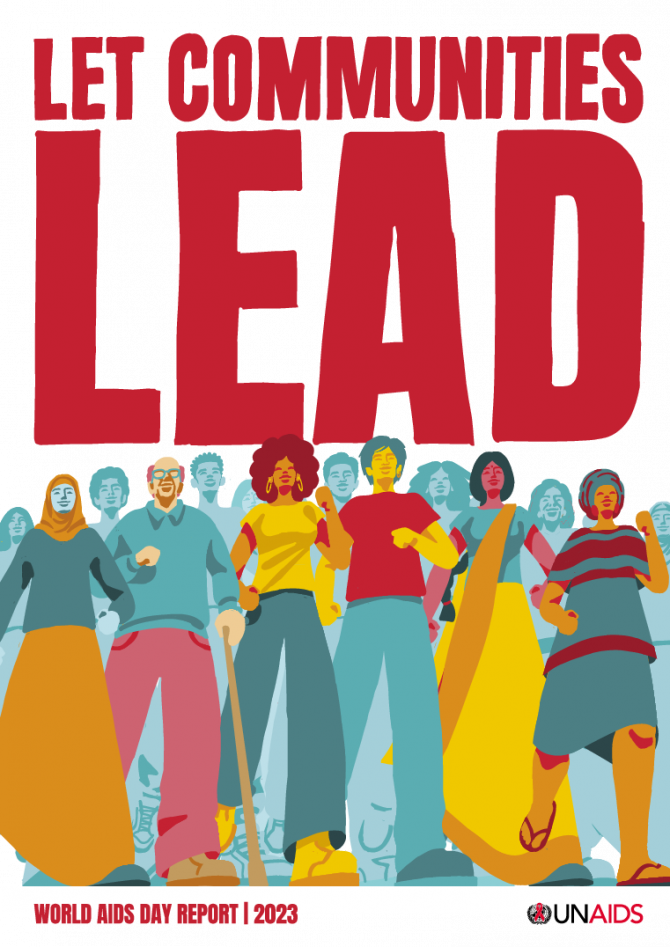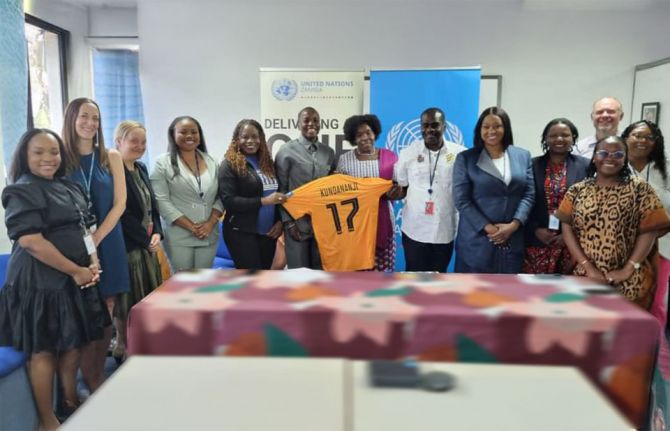Criminalization

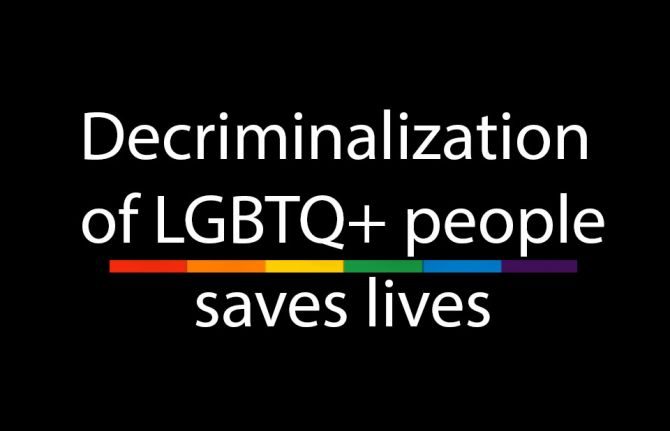
Press Statement
Decriminalization of LGBTQ+ people saves lives
19 July 2024 19 July 2024Joint Statement by UN High Commissioner for Human Rights Volker Türk and UNAIDS Executive Director Winnie Byanyima
GENEVA, 19 July 2024 — As courts and parliaments in a number of countries are in the midst of considering the legal framework around the rights of LGBTQ+ people, we highlight that punitive laws against lesbian, gay, bisexual, transgender and queer people violate human rights and undermine public health.
Such laws cost lives.
Laws criminalizing LGBTQ+ people must be consigned to history – and a growing number of countries are doing just that.
The big – and very welcome – global shift is away from criminalization. Over two-thirds of countries now do not criminalize LGBTQ+ people.
In the last 10 years alone, Angola, Antigua and Barbuda, Barbados, Belize, Bhutan, Botswana, Cook Islands, Dominica, Gabon, India, Mauritius, Mozambique, Namibia, Nauru, Palau, Saint Kitts and Nevis, Seychelles, Singapore, and Trinidad and Tobago have all repealed laws that had criminalized LGBTQ+ people.
There is a whole host of reasons why such laws must be scrapped.
Such laws are based on prejudice.
As Namibia's High Court recently noted, "the enforcement of the private moral views of a section of the community (even if they form the majority of that community), which are based to a large extent on nothing more than prejudice, cannot qualify as such a legitimate governmental purpose."
Such laws infringe upon human rights.
The Eastern Caribbean Supreme Court put it clearly: “The criminalization of same-sex sexual expression between consenting adults is intrusive by its very nature and thereby offends the right to liberty and personal privacy.”
Many such laws are actually legacies of colonialism, imposed by colonial powers themselves.
The now scrapped punitive anti-LGBTQ+ law in Mauritius, the Supreme Court of Mauritius recently noted, “was not the expression of domestic democratic will but was a course imposed on Mauritius and other colonies.”
Such laws harm public health.
Criminalization of LGBTQ+ people generates justified fear amongst people who need access to health services, and amongst the frontline workers who provide those services.
In criminalizing countries, there is decreased provision and uptake of HIV prevention services, and decreased uptake of HIV care and treatment services. A study in sub-Saharan Africa showed that HIV-prevalence among gay men and men who have sex with men was five times higher in countries that criminalized same-sex relationships than in non-criminalized settings.
Criminalizing countries have significantly lower rates of both knowledge of HIV status and HIV viral suppression among all people living with HIV.
Such punitive laws have no “law and order” justification.
In decriminalizing homosexuality in Singapore, there was clear recognition by the Government that there was no basis for making private sexual behaviour between consenting adults a crime.
Such laws lead to harassment.
As the Supreme Court of India has stated, punitive legislation has “become an odious weapon for the harassment of the LGBT community by subjecting them to discrimination and unequal treatment.”
There is extensive evidence that such discriminatory laws increase exposure of people to brutal hate crimes, police abuse, harassment, blackmail, torture, and denial of access to healthcare, education and housing.
They also drive impunity and undermine the rule of law, harming LGBTQ+ people, their families, communities, and the whole of society.
Stigma kills. Solidarity saves lives.
The progress that has been won around the world, in legislation and attitudes, needs to continue, as does the increasing recognition that people should not be criminalized for who they are and whom they love.
Anti-rights policies, proposals and propaganda need to be challenged head on.
Together, we call on all countries to remove all punitive laws against lesbian, gay, bisexual, transgender and queer people.
Decriminalization of LGBTQ+ people is vital for protecting everyone’s human rights and everyone’s health.
UNAIDS
The Joint United Nations Programme on HIV/AIDS (UNAIDS) leads and inspires the world to achieve its shared vision of zero new HIV infections, zero discrimination and zero AIDS-related deaths. UNAIDS unites the efforts of 11 UN organizations—UNHCR, UNICEF, WFP, UNDP, UNFPA, UNODC, UN Women, ILO, UNESCO, WHO and the World Bank—and works closely with global and national partners towards ending the AIDS epidemic by 2030 as part of the Sustainable Development Goals. Learn more at unaids.org and connect with us on Facebook, Twitter, Instagram and YouTube.
Documents
2024 global AIDS report — The Urgency of Now: AIDS at a Crossroads
22 July 2024
This UNAIDS 2024 report brings together new data and case studies which demonstrate that the decisions and policy choices taken by world leaders this year will decide the fate of millions of lives and whether the world’s deadliest pandemic is overcome. Related links: Press release | Special web site | Executive summary | Fact sheet | Video playlist | Epidemiology slides | Data on HIV | Annex 2: Methods Regional profiles: Asia and the Pacific | Caribbean | Eastern Europe and Central Asia | Eastern and Southern Africa| Latin America | Middle East and North Africa | Western and Central Africa | Western and Central Europe and North America Thematic briefing notes: People living with HIV | Gay men and other men who have sex with men | Transgender people | Sex workers | People who inject drugs | People in prisons and other closed settings | Adolescent girls and young women | Other translations: German
Related
 U=U can help end HIV stigma and discrimination. Here’s how
U=U can help end HIV stigma and discrimination. Here’s how

27 February 2025
 How the shift in US funding is threatening both the lives of people affected by HIV and the community groups supporting them
How the shift in US funding is threatening both the lives of people affected by HIV and the community groups supporting them

18 February 2025
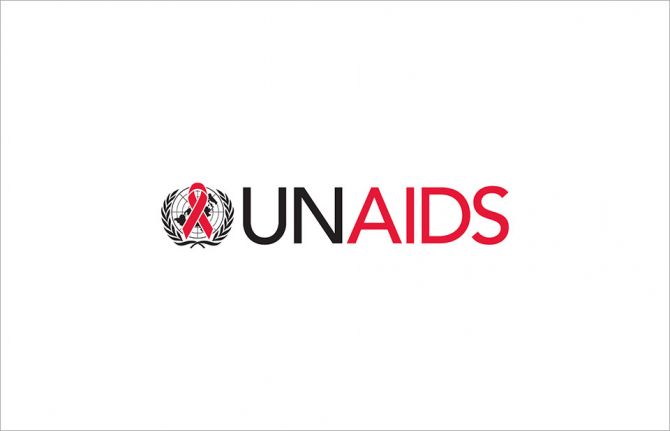 UNAIDS urges that all essential HIV services must continue while U.S. pauses its funding for foreign aid
UNAIDS urges that all essential HIV services must continue while U.S. pauses its funding for foreign aid

01 February 2025

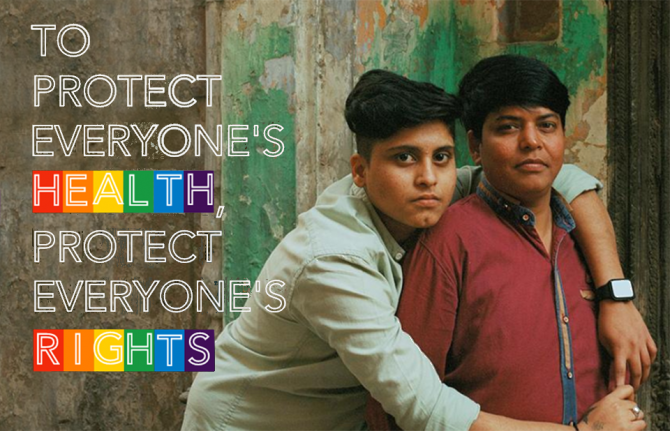
Press Statement
UNAIDS calls for the protection of human rights on the International Day to End Homophobia, Biphobia, and Transphobia (IDAHOBIT)
15 May 2024 15 May 2024GENEVA, 15 May 2024—Ahead of IDAHOBIT, commemorated worldwide on 17 May, UNAIDS is calling on governments everywhere to protect the human rights of LGBTQ+ people. Protecting the human rights of every person, UNAIDS research shows, is essential for protecting public health, because it enables inclusive and equitable access to health services without discrimination.
The movement for human rights for all has made important progress. For example, whereas, at the start of the AIDS pandemic, most countries criminalized LGBTQ+ people, now two thirds of countries do not.
However, more than 60 countries still do while another 20 countries criminalize gender expression and identity.
“Stigma, discrimination and criminalization can be lethal,” said Winnie Byanyima, Executive Director of UNAIDS. “In the response to HIV, we have learned that a human rights-based approach is critical in responding to a health crisis and leaving no-one behind. Countries must remove these discriminatory criminal laws and introduce legislation which protects rights if we are to end AIDS as a public health threat for everyone.”
Discrimination, violence and criminalization force many LGBTQ+ people underground and away from health services; as a result, gay men and other men who have sex with men, and transgender people, are more affected by HIV. Globally, in 2022, men who have sex with men were 23 times more likely to acquire HIV, and transgender women 20 times more likely to acquire HIV than other adults aged 15–49.
Criminalization of LGBTQ+ people in particular causes significant harm to health. In sub-Saharan Africa, men who have sex with men in countries where they are criminalized, are five times more likely to be living with HIV than in countries that do not criminalize same-sex sexual behavior.
As a recent IAS - Lancet report demonstrated, violations of human rights have multiple damaging impacts on public health. Treating people as criminals drives people away from vital services for fear of arrest and discrimination, resulting in them not accessing HIV prevention, treatment and care. In addition, strict anti-LGBTQ+ laws have been associated with a lack of knowledge about HIV testing and HIV status.
“For far too many people in our LGBTQ+ communities and beyond, the most basic things are still too far from reach, because of the discrimination, stigma, and violence they face every day,” said the international lesbian, gay, bisexual, trans and intersex association, ILGA World, co-Secretaries General Luz Elena Aranda and Tuisina Ymania Brown. “This is why they are rallying behind an urgent cry: ‘No one left behind: equality, freedom and justice for all,’ reminding us of the importance of rejecting discriminatory laws, policies, and attitudes.”
Criminal laws that discriminate on the basis of sexual orientation and gender identity are a breach of the right to privacy and non-discrimination and impede the HIV response. UNAIDS calls on all states to repeal such laws and to introduce legal protections against discrimination on the basis of sexual orientation.
UNAIDS, the World Health Organization, the United Nations Development Programme, and the Global Commission on HIV and the Law have made the same recommendations, as have the Office of the United Nations High Commissioner for Human Rights and several other United Nations agencies.
UNAIDS stands with LGBTQ+ people everywhere who are facing hate, discrimination and marginalization, and calls for an end to their criminalization.
UNAIDS
The Joint United Nations Programme on HIV/AIDS (UNAIDS) leads and inspires the world to achieve its shared vision of zero new HIV infections, zero discrimination and zero AIDS-related deaths. UNAIDS unites the efforts of 11 UN organizations—UNHCR, UNICEF, WFP, UNDP, UNFPA, UNODC, UN Women, ILO, UNESCO, WHO and the World Bank—and works closely with global and national partners towards ending the AIDS epidemic by 2030 as part of the Sustainable Development Goals. Learn more at unaids.org and connect with us on Facebook, Twitter, Instagram and YouTube.


Press Statement
UNAIDS expresses deep concern over the passing of new anti-LGBT legislation in Iraq
30 April 2024 30 April 2024GENEVA, 30 April 2024—The Joint United Nations Programme on HIV/AIDS (UNAIDS) is deeply concerned about the impact of the harmful new legislation in Iraq amending the 1988 anti-sex work law to criminalize LGBTQ+ people. The legislation imposes a prison sentence of between 10 and 15 years for same-sex sexual relations. Transgender people face up to three years imprisonment for expressing their gender or receiving gender affirmation care. Individuals also face up to seven years for promoting homosexuality. And up to three years for providing gender affirmation care.
Criminalizing consensual same-sex relationships and gender expression not only violates fundamental human rights but also undermines efforts to end AIDS by driving marginalized populations underground and away from essential health services, including life-saving HIV prevention, treatment and care services.
Globally, the movement for human rights has made progress in the past 40 years. At the start of the AIDS pandemic in the early 1980s, most countries criminalized same-sex sexual activity between men, now two thirds do not. An increasing number of countries have also recognized the rights of trans and other gender diverse people. However, this new legislation in Iraq represents a significant setback and is part of a wave of punitive and restrictive laws being passed that undermine the rights of LGBTQ+ people.
The legislation passed in parliament is an amendment to an existing 1988 anti-sex work law which continues to criminalize both the selling and buying of sexual services. The amendments passed on Saturday 27 April 2024 increase the penalties in relation to sex work. These laws, which countries committed to removing under the 2021 United Nations General Assembly Political Declaration on HIV and AIDS, likewise undermine the human rights and public health of sex workers.
UNAIDS calls upon the authorities of Iraq to overturn this discriminatory legislation and fulfill its obligations under international human rights law to protect the rights of all people, regardless of sexual orientation or gender identity. UNAIDS stands in solidarity with LGBTQ+ people and communities and reaffirms its commitment to work with partners to promote equality, end stigma and discrimination, uphold human rights—including the right to health, and ensure access to comprehensive HIV services for everyone, everywhere.
UNAIDS
The Joint United Nations Programme on HIV/AIDS (UNAIDS) leads and inspires the world to achieve its shared vision of zero new HIV infections, zero discrimination and zero AIDS-related deaths. UNAIDS unites the efforts of 11 UN organizations—UNHCR, UNICEF, WFP, UNDP, UNFPA, UNODC, UN Women, ILO, UNESCO, WHO and the World Bank—and works closely with global and national partners towards ending the AIDS epidemic by 2030 as part of the Sustainable Development Goals. Learn more at unaids.org and connect with us on Facebook, Twitter, Instagram and YouTube.
Our work
Region/country
Documents
Preventing and responding to an HIV-related human rights crisis — Guidance for United Nations agencies and programmes
25 April 2024
This Guidance was developed in response to the increase in HIV-related human rights crises and the shrinking civic space for rights-related responses to HIV in recent years across the world. This document builds upon existing guidance documents, offering updated guidance for country-based United Nations staff (United Nations Country Teams) and partners to use their respective mandates to coordinate effective responses to human rights-related crises within the framework of the Resident Coordinator system, the 2030 Agenda for Sustainable Development, global HIV and human rights strategies and frameworks.
Related
Impact of community-led and community-based HIV service delivery beyond HIV: case studies from eastern and southern Africa
30 January 2025
A shot at ending AIDS — How new long-acting medicines could revolutionize the HIV response
21 January 2025
Indicators and questions for monitoring progress on the 2021 Political Declaration on HIV and AIDS — Global AIDS Monitoring 2025
17 December 2024
UNAIDS data 2024
02 December 2024
 Global celebrities unite behind UNAIDS’ call for world leaders to “take the rights path to end AIDS”
Global celebrities unite behind UNAIDS’ call for world leaders to “take the rights path to end AIDS”

01 December 2024
Take the rights path to end AIDS — World AIDS Day report 2024
26 November 2024

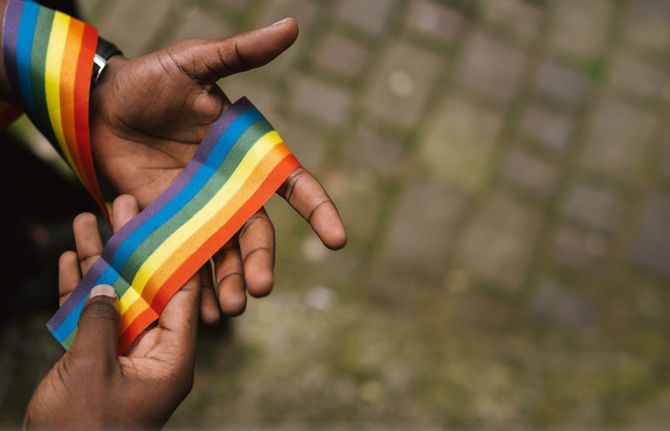
Press Statement
UNAIDS welcomes Court’s ruling to protect the rights of LGBTQ people in Dominica
22 April 2024 22 April 202422 April 2024 – UNAIDS welcomes the decision of the High Court of Dominica to protect the rights of LGBTQ people in Dominica.
Today the Court ruled that sections 14 and 16 of the Sexual Offences Act (SOA), which had criminalised consensual same sex activity between adults, are unconstitutional under the Constitution of the Commonwealth of Dominica. The Court ruled that the former provisions violated the right to liberty which is guaranteed by section 1(a) of the Constitution, freedom of expression which is guaranteed by sections 1 (b) and section 10 (1) and protection of personal privacy which guaranteed by section 1 (c).
In a decision by Justice Kimberly Cenac-Phulgence on a claim brought by a gay man, the Court found that:
“criminalising sexual relations between consenting adults of the same sex as effected by sections 14 and 16 of SOA is an unjustifiable restriction on the constitutionally guaranteed right to freedom of expression in a free and democratic society”.
Equally powerfully, the court accepted that the right to protection of privacy of the home encompasses:
“private and family life and the personal sphere which includes one’s sexual identity and orientation as well as intimate activity with a partner of a person’s choice. Therefore Sections 14 and 16 of the SOA contravene the Constitution in so far as they intrude on the private home life of an individual by proscribing the choice of consenting adults as to whom to engage in intimate sexual activity with, and are therefore, void.”
Dominica is the sixth country in the Caribbean in which powerful community action has resulted in the removal of the criminalisation of same-sex relations. As well as advancing human rights for everyone including LGBTQ people, this legal progress will also advance public health for everyone. The series of rulings made across the Caribbean are helping the region to speed up its progress towards zero new HIV infections, zero AIDS-related deaths and zero discrimination for affected people.
Winnie Byanyima, Executive Director of UNAIDS, said:
“Today another Caribbean Court has struck down the harmful old colonial punitive law which had criminalised LGBTQ people. Dominica’s ruling is a win for public health as well as for human rights. Protecting the human rights of all people is essential to protect the health of all people. Courts, as the guardians of written Constitutions which enshrine fundamental rights, are vital pathways for the realisation of everyone’s rights.”
UNAIDS congratulates Dominica and especially honours the fortitude of frontline communities in Dominica for leading the movement for the human rights of all people.
UNAIDS
The Joint United Nations Programme on HIV/AIDS (UNAIDS) leads and inspires the world to achieve its shared vision of zero new HIV infections, zero discrimination and zero AIDS-related deaths. UNAIDS unites the efforts of 11 UN organizations—UNHCR, UNICEF, WFP, UNDP, UNFPA, UNODC, UN Women, ILO, UNESCO, WHO and the World Bank—and works closely with global and national partners towards ending the AIDS epidemic by 2030 as part of the Sustainable Development Goals. Learn more at unaids.org and connect with us on Facebook, Twitter, Instagram and YouTube.
Our work
Region/country


Update
Statement from UNAIDS on the decision of the High Court of St. Vincent and the Grenadines to uphold discriminatory and harmful laws
25 February 2024
25 February 2024 25 February 2024UNAIDS is concerned about the impact on peoples’ health and rights following the decision of the High Court of St. Vincent and the Grenadines regarding sections 146 and 148 of the Criminal Code, which upholds discriminatory and harmful laws against LGBTQ people.
On Friday, February 16, 2024, the High Court, in an oral delivery, denied the claim by two Vincentian nationals, who reside outside of the country, that sections 146 and 148 of the Criminal Code criminalising buggery between any two persons with a penalty of up to 10 years imprisonment, violate the fundamental rights to privacy, personal liberty, freedom of conscience, freedom of expression and protection from discrimination. The Court dismissed in their entirety all claims by the two Claimants and awarded the sum of EC$7,500 prescribed costs to the Attorney General to be paid by each of the Claimants.
In the written decision published February 22, 2024, the Court in dismissing the consolidated claims of Javin Johnson and Sean MacLeish held that the Claimants had failed to establish on the evidence, a present or existing breach of any alleged rights due to lack of locus standi (the requisite standing to invoke a review by the Court) as the Claimants do not reside in the State and had not for years prior to the filing of the claims.
UNAIDS is particularly concerned that the judgment referred to protecting public health and tackling the HIV epidemic as justifying punitive anti-LGTBQ laws, because the evidence shows that such laws hinder efforts to protect public health and tackle the HIV epidemic. At paragraph 267 of the judgment the court asserted:
“to my mind the thought of a public health crisis occasioned by an unstemmed deluge of new HIV cases is a real and serious concern which reasonably justifies a public health response of the kind embedded in the challenged provisions”.
In fact, studies show that these laws have negative health outcomes. A punitive legal environment, including criminalisation of same sex relationships, drives people underground and away from vital health services, including HIV prevention, testing, treatment, and care. To achieve the goal of ending AIDS as a public health threat by 2030, it is vital to ensure that everyone has equal access to essential services without fear, stigma or discrimination.
UNAIDS has estimated that not achieving decriminalization of key populations in all countries would result in about 750 000 cumulative new HIV infections from 2020 to 2030.
The decision made in the High Court of St. Vincent and the Grenadines stands in stark contrast to the rulings in Belize, Guyana, Trinidad and Tobago, Antigua and Barbuda, St. Kitts and Nevis and Barbados where the courts ruled that laws which criminalise persons based on sexual orientation and gender identity violate the protected rights to dignity, privacy, personal liberty, freedom of conscience, freedom of expression and protection from discrimination.
Regardless of the outcome of this court decision, UNAIDS holds hope that the courts will serve as a vital last resort for social justice, the protection of human rights and the advancement of public health for improved health and wellbeing for all. UNAIDS work to end AIDS and to leave no one behind will continue in partnership with communities and with all branches of government, including the courts.
Punitive laws obstruct the end of AIDS and ultimately hurt everyone’s health. As we prepare for observance of the tenth anniversary of Zero Discrimination Day on March 1st, 2024, we pay tribute to the courage of communities, and call on all duty bearers to protect the health of all by protecting the human rights for all.
NOTE FOR THE EDITORS:
UNAIDS
The Joint United Nations Programme on HIV/AIDS (UNAIDS) leads and inspires the world to achieve its shared vision of zero new HIV infections, zero discrimination and zero AIDS-related deaths. UNAIDS unites the efforts of 11 UN organizations—UNHCR, UNICEF, WFP, UNDP, UNFPA, UNODC, UN Women, ILO, UNESCO, WHO and the World Bank—and works closely with global and national partners towards ending the AIDS epidemic by 2030 as part of the Sustainable Development Goals.
ZERO DISCRIMINATION DAY
March 1st this year is the tenth anniversary of Zero Discrimination Day. Upholding everyone’s rights is the responsibility of us all. Everyone can play a part in ending discrimination. On 1 March, and across the whole month of March, events, activities and messages will remind the world of this vital lesson and call to action: to protect everyone’s health, protect everyone’s rights. #ZeroDiscrimination
Contact
UNAIDS Multi-country Office for the CaribbeanRichard Amenyah, Multi-country Director
amenyahr@unaids.org
UNAIDS Latin America and Caribbean
Daniel de Castro, Regional Communications and Advocacy Adviser
tel. +507 6998 3175
decastrod@unaids.org
Our work
Related

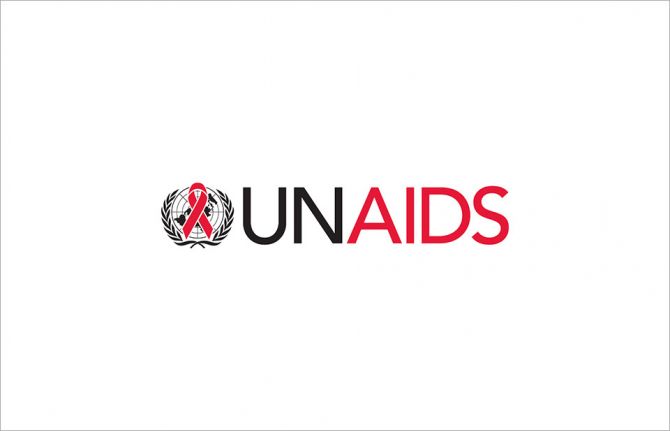
Press Statement
UNAIDS Executive Director Winnie Byanyima responds to the passage of the Human Sexual Rights and Ghanaian Family Values Bill in Ghana’s parliament
28 February 2024 28 February 2024Responding to the passage of the Human Sexual Rights and Ghanaian Family Values Bill in Ghana’s parliament, UNAIDS Executive Director Winnie Byanyima said:
“The Human Sexual rights and Ghanaian Family Values Bill, a private member’s bill passed by parliament, has not yet become a law in Ghana.
If the bill does become a law, it will affect everyone.
Ghana is respected as a stable country where the rule of law prevails, a member of the Human Rights Council, and a global leader in fighting inequality. African values and principles of Ubuntu, dignity, non-discrimination, equality, empathy, protection from violence and care for each other shaped Ghana’s independence struggles, and have continued to be at the heart of Ghana’s society and constitutional democracy. Approaches rooted in inclusion of all people have been crucial to Ghana’s progress in the HIV response. To achieve the goal of ending AIDS as a public health threat by 2030, it is vital to ensure that everyone has equal access to essential services without fear, stigma or discrimination, and that providers of life-saving HIV prevention, testing, treatment and care services are supported in their work.
If Human Sexual rights and Ghanaian Family Values Bill becomes a law, it will exacerbate fear and hatred, could incite violence against fellow Ghanaian citizens, and will negatively impact on free speech, freedom of movement and freedom of association.
If it becomes law, it will obstruct access to life-saving services, undercut social protection, and jeopardize Ghana’s development success.
Evidence shows that punitive laws like this Bill are a barrier to ending AIDS, and ultimately undermine everyone’s health.”
UNAIDS
The Joint United Nations Programme on HIV/AIDS (UNAIDS) leads and inspires the world to achieve its shared vision of zero new HIV infections, zero discrimination and zero AIDS-related deaths. UNAIDS unites the efforts of 11 UN organizations—UNHCR, UNICEF, WFP, UNDP, UNFPA, UNODC, UN Women, ILO, UNESCO, WHO and the World Bank—and works closely with global and national partners towards ending the AIDS epidemic by 2030 as part of the Sustainable Development Goals. Learn more at unaids.org and connect with us on Facebook, Twitter, Instagram and YouTube.

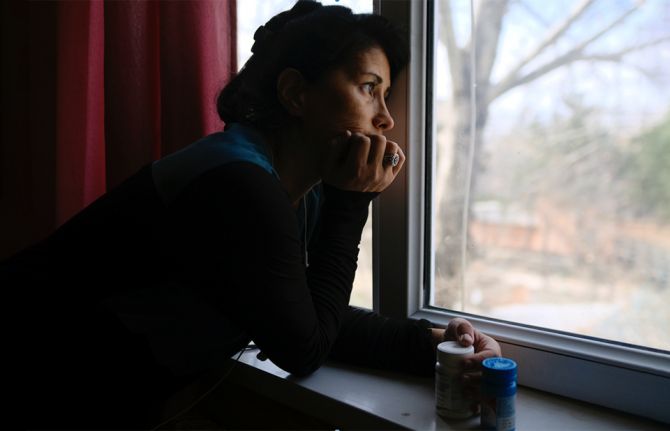
Feature Story
Tajikistan takes a positive step towards decriminalization of HIV exposure and transmission
30 January 2024
30 January 2024 30 January 2024In an important decision of the Plenum of the Supreme Court on December 26, 2023, Tajikistan has marked a significant step towards decriminalization of HIV exposure and transmission in its pursuit of justice for people living with or affected by HIV.
Through a new resolution, the courts are asked to examine more objectively issues related to criminal liability for HIV exposure and transmission under Article 125 of the Criminal Code. The resolution obliges judicial practice to be based on new norms that take into account international standards and recommendations including the Undetectable = Untransmittable concept endorsed by UNAIDS and WHO which asserts that people who are living with HIV who are on antiretroviral treatment and have an undetectable viral load cannot transmit HIV.
Article 125 of the Criminal Code currently criminalizes HIV transmission and exposure with a penalty of up to two years’ imprisonment (Part 1), while transmission by someone aware of their status is penalized with two to five years’ imprisonment (Part 2), increased to five to ten years’ when committed against multiple people or a minor (Part 3).
In some cases, decisions were made solely based on a person’s HIV-positive status, criminalizing people living with HIV rather than ensuring access to HIV services, treatment and support.
More than 70% of people convicted under Article 125 have been women living with HIV. Women living with HIV may be subjected to domestic violence, stigma, and discrimination and do not seek justice in courts, due to the fear of accidental disclose of their HIV status and further criminal prosecution.
“This new resolution is encouraging because it allows for more fair interpretation of existing laws (which is very important) but it does not establish new laws or change the Criminal Code which still criminalizes HIV exposure and transmission. Therefore, it is important to continue advocacy to change the Criminal Code and decriminalize HIV transmission and exposure.” said Tahmina Haidarova, Head of the Network of Women Living with HIV in Tajikistan.
The new move towards a more just legal framework has been the result of collaborative efforts of the Supreme Court and civil society organizations, as well as long-term advocacy of UNAIDS, UNDP, and the Global Fund to fight AIDS, TB and Malaria that reflects a holistic and inclusive approach to addressing the complexities of HIV-related legal matters.
The consequences of a punitive approach, where law enforcement takes precedence over medical professionals, has contributed to the growth of the HIV epidemic in Tajikistan - the number of new HIV infections has increased by 20% over the past 10 years. The percentage of new HIV cases among women has also grown - from 31% in 2011 to 36% in 2022.
International partners, including UNAIDS, UNDP, and the Global Fund, echo the call to repeal laws criminalizing HIV. The negative impact of such legislation on HIV testing rates and adherence to treatment cannot be overstated. An evidence-based approach is crucial for fostering a healthier society.
“Tajikistan's move towards HIV decriminalization marks a positive step towards commitment to justice, inclusivity, and public health,” said Eamonn Murphy, UNAIDS Regional Director for Asia-Pacific and Eastern Europe and Central Asia. “This journey is guided by the principles of compassion, cooperation, and evidence-based policymaking. UNAIDS, together with partners, welcomes the efforts of the Supreme Court to reduce prosecution and humanize the judicial system. UNAIDS will continue to support the country in its journey to fulfil the human rights of all people living with HIV.”
Resources
Region/country
Related
 Status of HIV programmes in Tajikistan
Status of HIV programmes in Tajikistan

05 March 2025
 U=U can help end HIV stigma and discrimination. Here’s how
U=U can help end HIV stigma and discrimination. Here’s how

27 February 2025
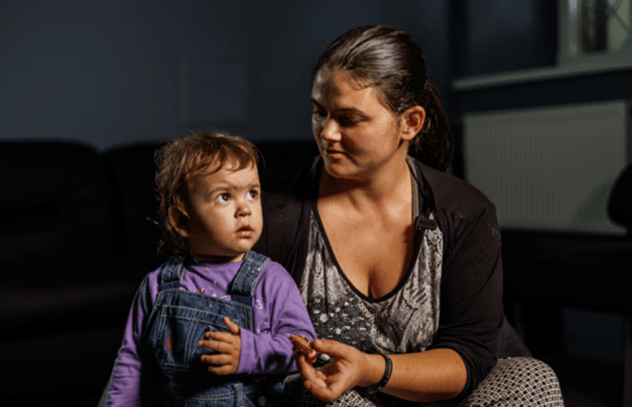 Three Years On: From crisis to prospective recovery
Three Years On: From crisis to prospective recovery

20 February 2025
Documents
Summary — Let Communities Lead — UNAIDS World AIDS Day report 2023
28 November 2023
This report is not only a celebration of the critical role of communities. It is a call to action to decision-makers to fully support the life-saving work of communities and to clear away the barriers that stand in their way. Press release | Full report | Fact sheet | World AIDS Day 2023
Related
 UNAIDS calls for rights, equality and empowerment for all women and girls on International Women’s Day
UNAIDS calls for rights, equality and empowerment for all women and girls on International Women’s Day

06 March 2025
 U=U can help end HIV stigma and discrimination. Here’s how
U=U can help end HIV stigma and discrimination. Here’s how

27 February 2025
 How the shift in US funding is threatening both the lives of people affected by HIV and the community groups supporting them
How the shift in US funding is threatening both the lives of people affected by HIV and the community groups supporting them

18 February 2025

